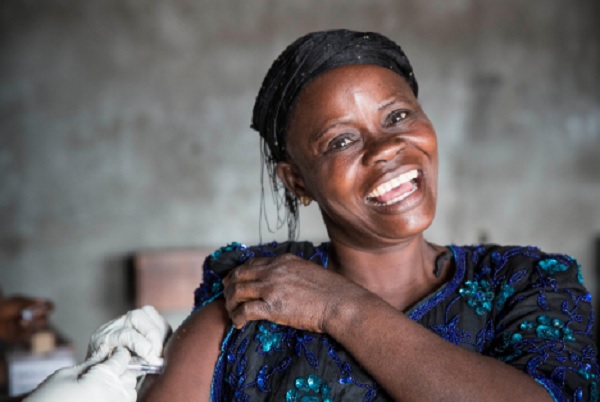
It is being administered to children aged 9 months in the routine immunisation programme
Kampala, Uganda | AGENCIES | The Ministry of Health will vaccinate over 1.9 million children against yellow fever with support from UNICEF, the World Health Organization (WHO) and Gavi
In 2022, Uganda was one of 14 countries in Africa reporting confirmed cases of yellow fever. With the support of the Eliminate Yellow fever Epidemics (EYE) Strategy and its key partners, including the World Health Organisation, UNICEF and Gavi, the Vaccine Alliance; a multi-country outbreak response was organised in neighbouring countries that faced more serious yellow fever transmission.
During the Integrated Child Health Days (ICHD) activities in October 2022, despite the ongoing Ebola Virus Disease outbreak having been declared the month before, Uganda maintained its plans to introduce the yellow fever vaccine into its routine immunisation programme.
It is being administered to children aged 9 months, as part of its commitment to the EYE Strategy, with a vaccine introduction grant (VIG) from Gavi. All children will be vaccinated with both yellow fever and measles-rubella vaccines.
The EYE Strategy is a multi-stakeholder partnership that provides support to high-risk countries on how to minimise and eventually end the threat of yellow fever epidemics.
“Uganda is committed to controlling yellow fever transmission,” said Dr Jane Ruth Aceng Ocero, Uganda’s Minister of Health. “We want to ensure that our people are protected against this high-threat disease, and vaccines remain the main tool we have to efficiently prevent and contain yellow fever outbreaks.”
Uganda is a high-risk country for yellow fever transmission due to less than 10 per cent of the population being immunised against it, with sporadic outbreaks occurring every 3 to 5 years. The recent confirmed cases have been reported from near urban areas, such as Kampala. Around 24 per cent of Ugandans (approximately 44 million in total), live in urban areas with roughly half of those living in slums. Urban outbreaks of yellow fever in densely populated areas with low population immunity and often with poor sanitation, can have catastrophic consequences.
“We applaud Uganda for taking such an important step towards immunisation against yellow fever,” said Dr Yonas Tegegn Woldemariam, WHO Representative in Uganda. “Vaccination is the single most important measure for preventing yellow fever, and the prevention of outbreaks can only be achieved if the majority of the population is immunised.”
Yellow fever is transmitted by the Aedes Aegypti or Haemagogus mosquito species and outbreaks in Uganda originate mainly from sylvatic, or jungle, transmission. Mosquitoes acquire the virus by feeding on infected primates and then bite humans during agricultural and other activities in forested areas. Humans can then carry the virus to other areas, including urban centres, where it is spread by mosquitoes from human to human.
Yellow fever infections can cause serious illness and, in up to 30–60 per cent of severe cases, death. There are no specific therapeutics to treat the disease, but early supportive care increases survival rates. Crucially, there is a vaccine against yellow fever, and it is safe, highly effective and only a single dose is needed for life-long protection.
“The recent rise in disease outbreaks and the risks they present are why Uganda’s introduction of the yellow fever vaccine into its routine immunisation programme is so important.” said Thabani Maphosa, the Managing Director, Country Programmes Delivery at Gavi, the Vaccine Alliance. “We commend the continued commitment of the Government of Uganda and will work with all partners to support this vital programme, which will save many lives.”
“There is no cure for yellow fever. It can only be prevented,” said Dr. M. Munir A. Safieldin, UNICEF Representative to Uganda. “A single dose of yellow fever vaccine is sufficient to give an individual life-long protection against the virus. This addition to the routine immunisation schedule is critical to saving children’s lives and will go a long way towards eliminating epidemics of this disease.”
In addition to the success of the roll-out of yellow fever vaccine into its routine immunisation schedule, Uganda will start the implementation of a phased preventive mass vaccination campaign (PMVC) by administering 13 million vaccine doses in 2023, for which Gavi has provided funding through a campaign operations grant. This will target areas deemed most vulnerable to outbreaks.
*****
Source: WHO
 The Independent Uganda: You get the Truth we Pay the Price
The Independent Uganda: You get the Truth we Pay the Price



